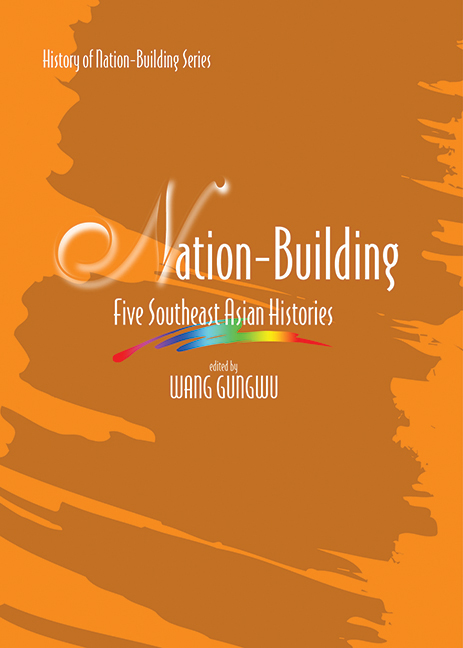Book contents
- Frontmatter
- Contents
- Preface
- The Contributors
- Chapter One Contemporary and National History: A Double Challenge
- Chapter Two Nation and State in Histories of Nation-Building, with Special Reference to Thailand
- Chapter Three Rethinking History and “Nation-Building” in the Philippines
- Chapter Four Writing the History of Independent Indonesia
- Chapter Five Ethnicity in the Making of Malaysia
- Chapter Six Historians Writing Nations: Malaysian Contests
- Chapter Seven Writing Malaysia's Contemporary History
- Chapter Eight Forging Malaysia and Singapore: Colonialism, Decolonization and Nation-Building
- Chapter Nine Nation-Building and the Singapore Story: Some Issues in the Study of Contemporary
- Chapter Ten Nation and Heritage
- Index
Chapter Seven - Writing Malaysia's Contemporary History
Published online by Cambridge University Press: 21 October 2015
- Frontmatter
- Contents
- Preface
- The Contributors
- Chapter One Contemporary and National History: A Double Challenge
- Chapter Two Nation and State in Histories of Nation-Building, with Special Reference to Thailand
- Chapter Three Rethinking History and “Nation-Building” in the Philippines
- Chapter Four Writing the History of Independent Indonesia
- Chapter Five Ethnicity in the Making of Malaysia
- Chapter Six Historians Writing Nations: Malaysian Contests
- Chapter Seven Writing Malaysia's Contemporary History
- Chapter Eight Forging Malaysia and Singapore: Colonialism, Decolonization and Nation-Building
- Chapter Nine Nation-Building and the Singapore Story: Some Issues in the Study of Contemporary
- Chapter Ten Nation and Heritage
- Index
Summary
Arecent discussion on nation-building in Southeast Asia steered participants to look into the broader questions of what indeed is the region's contemporary history and how it should be approached. It is striking, as Professor Wang Gungwu has noted, that the early study of nation-building has been done largely by political scientists and not by historians. If the process of nation-building in the region is still on-going, as is generally acknowledged, and if the study of nation-building then is considered as falling within contemporary history, it may then be asked whether historians are able to offer an approach that is new or different from what have been applied so far by social scientists.
The historian distinguishes his work by an adoption of a narrative form. This presentation of an unfolding of events requires the searching and collection of data, critical evaluation of evidence, and assembling them into a coherent and accurate account. The historian retrieves facts that are of historical significance and draws attention to these in his careful and accurate recording of what happened. More importantly, the historian offers chronological depth in explaining and analysing features and issues that may be contemporary or otherwise. The product stands, at the least, as a faithful and well-documented chronicle of a particular period of the past. It is upon the historian's detailed and well ordered data that many social scientists eventually draw upon for comparative studies across time and place.
The historian, however, goes beyond a narration of the sequence of events. He may suggest how the distant past continues to have an influence on his unfolding story and might discover that amidst the changes taking place today are elements of continuity. Among these enduring features are ideas and institutions that have survived the past and have, in modified forms perhaps, persisted to shape events in contemporary history. Furthermore, the historian is sharply aware that how the country's past is recalled and reconstructed has a bearing on the thrust and direction of nation-building.
- Type
- Chapter
- Information
- Nation BuildingFive Southeast Asian Histories, pp. 163 - 190Publisher: ISEAS–Yusof Ishak InstitutePrint publication year: 2005



